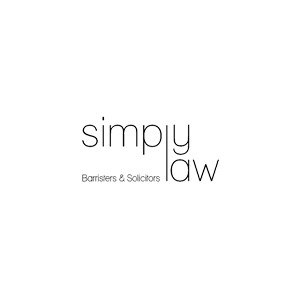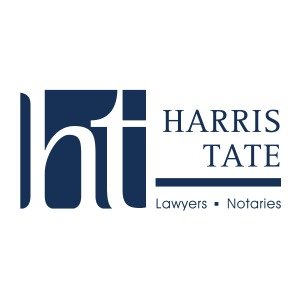Best Water Law Lawyers in Tauranga
Share your needs with us, get contacted by law firms.
Free. Takes 2 min.
List of the best lawyers in Tauranga, New Zealand
About Water Law in Tauranga, New Zealand
Water Law in Tauranga, New Zealand, covers the legal rights, responsibilities, and frameworks concerning the use, management, and protection of water resources. This includes rivers, lakes, groundwater, coastal waters, and how water use intersects with land development, farming, and urban growth. Given Tauranga's rapid population growth and its location on the Bay of Plenty, the management of water resources is a crucial legal and environmental concern for residents, farmers, businesses, and local authorities alike.
Why You May Need a Lawyer
There are several situations where you may need legal advice or representation in the field of Water Law in Tauranga:
- Applying for or renewing water rights or resource consents to take or use water
- Disputes with neighbors, businesses, or local authorities about water allocation or usage
- Dealing with contamination or pollution of water sources affecting your property or health
- Understanding your rights and obligations if you own property on or near a waterway
- Addressing flood risk, stormwater management, or land development issues involving water
- Responding to council enforcement actions or objections related to water use
- Challenging local water management or planning decisions impacting your interests
- Ensuring compliance with environmental regulations for businesses or farming operations
Experienced Water Law lawyers can help interpret complex legislation, represent your interests in negotiations or court, and provide guidance on compliance and best practices.
Local Laws Overview
Water Law in Tauranga is governed by several interrelated pieces of national and regional legislation, as well as local council rules and plans. Key frameworks include:
- Resource Management Act 1991 (RMA): The primary legislation regulating water resources and environmental management. It sets out requirements for resource consents to take, use, dam, or divert water, and mandates the sustainable management of water.
- Bay of Plenty Regional Water and Land Plan: The Bay of Plenty Regional Council administers this plan, which contains rules on water allocation, water quality, discharges, and the protection of aquatic habitats. It governs how much water can be taken from groundwater or rivers, and the conditions for doing so.
- Tauranga City Council Bylaws and Plans: These include stormwater management, water supply, and wastewater bylaws, as well as requirements for new developments. Local plans also integrate with regional rules for managing flood hazards and water-sensitive urban design.
- Maori Interests: Tangata whenua have specific rights and interests in freshwater and may be consulted on water management decisions as mandated by Treaty of Waitangi principles.
Consenting processes, monitoring, and compliance actions are handled by both the Bay of Plenty Regional Council and Tauranga City Council, depending on the activity and location.
Frequently Asked Questions
What activities require a water permit or resource consent in Tauranga?
You need a resource consent to take (extract), use, dam, or divert water from rivers, lakes, groundwater, or streams unless the activity is permitted under the regional plan. Consent may also be required for discharging water or contaminants into water bodies.
Can I take water from a stream or river on my property without permission?
Generally, you cannot take water from natural water bodies without a permit, except for small amounts used for domestic needs or stock drinking water, as specified by the regional rules. Always check the Bay of Plenty Regional Council guidelines first.
How are water allocation and use regulated?
The Bay of Plenty Regional Council allocates water through a consenting process, setting limits to ensure sustainable use and protect the environment. There are limits on how much water can be taken from each catchment.
What are my responsibilities if I want to build or develop near a waterway?
You may need consents or approvals for works near streams, rivers, or the coast, particularly if you risk disrupting water flow, increasing flood risk, or impacting water quality. Tauranga City Council's District Plan and the Regional Water and Land Plan outline these requirements.
What should I do if water on my property becomes contaminated?
Contact the Bay of Plenty Regional Council immediately to report the incident. Legal options depend on the source and extent of the contamination, and a lawyer can advise on possible claims for compensation or enforcement actions.
How are Maori rights and interests in water recognised?
The law recognizes tangata whenua relationships with water. Iwi and hapu are consulted on resource consents and included in water policy decisions, especially where cultural values or Treaty of Waitangi rights are affected.
Who enforces water law compliance in Tauranga?
The Bay of Plenty Regional Council and Tauranga City Council enforce water law compliance, including monitoring consent conditions, investigating breaches, and taking enforcement action where necessary.
Can I object to someone else's resource consent application for water use?
Yes. Affected parties and the public can make submissions on notified consent applications and may participate in hearings. Legal advice can help you understand your standing and the process.
Do water regulations apply to rainwater tanks?
Generally, collecting rainwater from your own roof for household use does not require a consent. However, larger systems, communal tanks, or supply for commercial use may have additional requirements.
What happens if I breach water law or consent conditions?
Breaches can attract warnings, fines, abatement notices, or prosecution. Engaging a lawyer as soon as possible is essential to mitigate risks and comply promptly.
Additional Resources
Several organizations and governmental bodies provide guidance and assistance for Water Law issues in Tauranga:
- Bay of Plenty Regional Council - for consents, rules, and reporting incidents
- Tauranga City Council - for local development rules and consultation
- Ministry for the Environment - for national water management policy
- Te Puni Kokiri and local iwi/hapu authorities - for Maori water rights and engagement
- Community Law Centres - for free or low-cost initial legal advice
- New Zealand Law Society - for finding specialist Water Law lawyers
Next Steps
If you need legal advice or assistance with Water Law in Tauranga, consider the following steps:
- Identify your exact legal issue, such as a consent application, dispute, compliance matter, or claim for compensation.
- Gather relevant documents, including correspondence, council notices, resource consents, and site plans.
- Contact a lawyer or legal advisor who is experienced in environmental and Water Law. Prepare your questions in advance to make the most of your consultation.
- Make use of the additional resources listed above if you need help understanding the law or finding the right lawyer.
- Act quickly, especially if facing enforcement action or deadlines for submissions or appeals.
Legal processes around Water Law can be complex, but by seeking professional guidance and engaging early, you can protect your rights and interests while contributing to sustainable water management in Tauranga.
Lawzana helps you find the best lawyers and law firms in Tauranga through a curated and pre-screened list of qualified legal professionals. Our platform offers rankings and detailed profiles of attorneys and law firms, allowing you to compare based on practice areas, including Water Law, experience, and client feedback.
Each profile includes a description of the firm's areas of practice, client reviews, team members and partners, year of establishment, spoken languages, office locations, contact information, social media presence, and any published articles or resources. Most firms on our platform speak English and are experienced in both local and international legal matters.
Get a quote from top-rated law firms in Tauranga, New Zealand — quickly, securely, and without unnecessary hassle.
Disclaimer:
The information provided on this page is for general informational purposes only and does not constitute legal advice. While we strive to ensure the accuracy and relevance of the content, legal information may change over time, and interpretations of the law can vary. You should always consult with a qualified legal professional for advice specific to your situation.
We disclaim all liability for actions taken or not taken based on the content of this page. If you believe any information is incorrect or outdated, please contact us, and we will review and update it where appropriate.

















